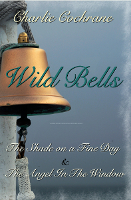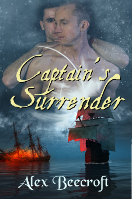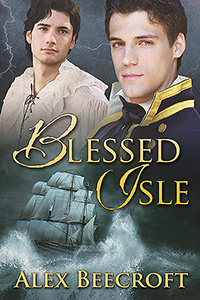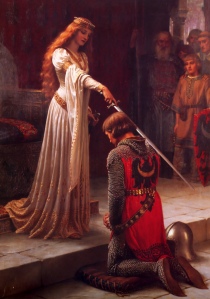Bisexual historical romance: writing the woman into that special relationship

1. Writing
The idea that inspired me to write, what ultimately led to the unholy marriage between gay male romance and Regency romance known as Phyllida and the Brotherhood of Philander, was probably not so very different from what inspired the other members of this group: two men in love, and making love, is a beautiful thing. From the age of twelve, when I first read Mary Renault’s The Last of the Wine, I was captivated by her ideal of love between two noble citizen-warriors, as in ancient Athens, and commended by Plato: the highest form of love known to the human species.
Of course, living in New York City, I had many opportunities to know actual gay men. I saw that love is love, whatever the genders of the people involved, and that gay men are people like any other, with the same mix of good and bad qualities as any of us. Still, as I grew older, and interested in sex and boys for myself, I never quite forgot this inspiring image of the “superior relationship.” Somehow, I thought, I want to be a part of that.
But how?
Now, I want to say up front that I in no way consider women inferior to men. While I never wanted to be a man, I have been very grateful to live in the modern world where women can do everything men do and where equal opportunity is the law. Like many people, I have a divide between what I know intellectually, that women are as good as, if not better than, men; and what I feel emotionally, that there is this “superior relationship” that only two men can have. One solution I have found as a writer is to write myself into the story, to choose one of those “superior” men for mine: a “bisexual” husband. (This affects only my writing, unfortunately, and has nothing to do with my “real life”—even assuming I had one.)
A number of years ago, having read far too many heterosexual romance novels than is good for anybody, I discovered fantasy fiction. In one of those imaginary worlds, a planet in a distant galaxy, in a time far in the future and yet with many archaic, faux-medieval customs, I discovered a fictional character, primarily same-sex oriented, who, “a man of impulse,” had a brief affair with a woman and fathered a child. Aha! I thought, taking my first step toward the idea of “bisexual romance.”
From fantasy fiction to fanfic is but a quick and easy truncation. Soon I was writing stories in the first person as the wife of this bisexual husband, in a world where same-sex relationships were acceptable and where a man with both a wife and a male lover was considered a perfectly fine arrangement.
But apart from the fact that the original author of the world I was writing in changed her mind about allowing fanfic, I was faced with an even greater hindrance to my dreams of a career as a fantasy writer: my voice is a comic one. No matter what I was writing—war, death, political machinations, steamy love scenes between my hot husband and his even hotter younger boyfriend—it all came out with a humorous tone. I was faced with two choices: go on writing bad comedy or try to write good comedy.
To write good comedy, it helps to write in a comic genre. Finally, all that romance reading paid off. The Regency romance, as begun by Georgette Heyer in the 1930s and 40s, is a comedy of manners. Later romances, more properly called historicals set in the Regency period, incorporate some sex into the plots. This is when I had my epiphany: why not “slash” the Regency romance? (Slash fiction, for those unfamiliar, is fiction that takes an existing work—a novel, stories, film or TV show—and rewrites it, or writes stories set in its world, with same-sex relationships between the characters, usually, but not always, m/m).
And so Phyllida was born. My original idea, very soon abandoned, involved a hero torn between two lovers, a man and a woman, and having to choose. Well, that wouldn’t work. If he chooses the man, I was writing myself out of the story—a story I had spent half my life trying to get into. But if he chooses the woman, then what am I saying? That heterosexual love is better? That a gay man can “change” or be “converted” by the “right woman?” Barf! And gack! That’s not only disgusting, it’s immoral—or should be.
Luckily, comedy came to the rescue. The romantic comedy, and the romance novel itself, are full of conventions, standard ideas and situations, that are used over and over. This is one reason that romance is considered formulaic, but we shouldn’t confuse form with formula. A sonnet has the same form, used for centuries. A good poet can write a fresh sonnet using the same centuries-old form. A poor writer will write stale, tired, formulaic prose whether or not s/he uses a conventional plot.
Once I got going, there was no end to the romance-novel conventions I could put a “twist” on, starting with the basic plot premise itself: the typical rakish gentleman, sexy and domineering, who is forced to marry for convenience. Just suppose, I thought, I make him gay. He’s had lots of experience, but with men. Settling down and marrying isn’t a problem of choosing one woman out of many, but of having to choose a woman at all.
My opening scene, in which our hero, Andrew Carrington, wakes up, supremely hung-over, to discover he’s picked up a seventeen-year-old boy prostitute the night before, is a way of establishing the hero’s just-right mix of libertinism and honor. Yes, he’s red-blooded man enough to go for a young street boy when he’s lost all his inhibitions through too much “blue ruin,” but he’s principled enough to feel shame the next day, and determined to reform. This was the impetus for him to do his duty to his family and choose a wife. (In the interests of shielding modern sensibilities, I made the boy “almost eighteen” rather than the younger age I thought likely. The age of consent at the time was thirteen, but why push more buttons than the elevator-bank full I’d already jabbed?)
The idea that our gay hero might fall in love with his bride is only slightly more farfetched than many other comic devices of this genre. Some kinds of comedy require that readers accept a certain amount of absurdity. They forgo surface truths of realism and probability in the interest of discovering deeper truths of human nature as the story unfolds. We’ve all read obituaries, perhaps known instances, of a gay man married to a woman, not for camouflage, but because this was the one person he loved enough to marry. The writer Joseph Hansen, author of the Dave Brandstetter mysteries, is one example. That our hero will fall in love with the bride chosen for him or forced on him is a given in this kind of comic story. It’s the writer’s job to persuade readers that this woman is the right one for this man, not to renounce comic coincidence or serendipity.
One detail that disappoints some people is that Matthew Thornby, our hero’s “true love,” only makes his appearance more than halfway through this long novel. But there’s a limit to how much improbable stuff you can make readers swallow. I was convinced that Andrew, honorable as he was, would never have submitted to “duty” if had already met the love of his life. He’d let his younger brother do it, or shrug off the whole problem as something that will be of no concern to him after he’s dead. No, in the interests of getting this unusual romance started, Andrew had to be alone at the start of the story, his young man away overseas for almost three years in the Peninsular War, for him to be willing to shoulder the burdens of family obligation and inheritance.
But I also made sure to keep him actively “gay.” It was important for me to show that marriage to a woman hasn’t made Andrew lose interest in men. He enjoys a friendly night of sex with his club-mate from the Brotherhood of Philander, the upscale molly house he belongs to, on the eve of his wedding, and pursues his casual affair with a handsome young actor during his early married life. Good fiction has no agenda—it should tell the story that’s right and true for the characters, whatever that is—but a writer can’t help having preferences. This was my ideal husband I was writing, and I was damned if marriage to a woman was going to turn him straight. A very slight degree of “bisexuality” was all I required, just enough to encompass one woman.
As to my heroine, Phyllida, some readers have objected that no proper young lady of the period would be so accepting of a sodomite husband or so sexually aroused by seeing him with his lovers. This is where I think people’s personal preferences are skewing their judgment. While the love match had triumphed in the popular imagination by 1812, there were still many people making more practical alliances, as Jane Austen’s fiction demonstrates, albeit for a different level of society. I gave my heroine a mother with a rather shady background, a woman who had begun her adult life sold by her family into a form of prostitution, and ever alert for a good chance for her daughters to make their own fortunes. In other words, there were undoubtedly many young women who, whether by coercion or by choice, were willing to put up with a great many unpleasant things for the sake of marriage to a wealthy aristocrat.
But, people still protest, Phyllida likes it. This sounds a little too much like those Victorians who didn’t believe women could or should have sexual feelings, or the many people even now who don’t think that a woman can enjoy anal or oral sex. The fact that some women nowadays enjoy seeing men together means it’s highly unlikely that nobody two hundred years ago had the same feelings. I imagine the same basic things that turn people on now in front of the TV and computer were exciting people thousands of years ago around cave fires. Young people, especially those in the middle and upper classes, have always been told by their elders what they should and shouldn’t do, and many societies have told women (and men) what they should like and what they should not. But there are always some rebels who discover their tastes for themselves…
Of course, the one ingredient in this story essential to romance and often lacking in real life is honesty. We know that many gay men in the past made marriages of convenience to women; some more or less successfully, in the sense of producing children and not killing or divorcing each other; others less so. But it was unlikely that these men felt free or safe enough to be honest and open with their wives, or that many of these marriages developed into what we would recognize as a romance. In order for the possibility of love to exist in my contrived comic form, I needed my hero and heroine to be honest with each other from the start. For all the deceit and misunderstanding that occur subsequently, the only chance this gay-bisexual man and his wife have of finding love is to begin with honesty on his part and acceptance on hers. Whether this is any more or any less “realistic” than other conventions of the romance novel, I leave for readers to decide.
After I had finished writing Phyllida, I joined a listserv called RomanceScholar, for academics who study romance seriously as a form of popular fiction. At one point the topic of gay male romance written by women came up on the list, and there was a lot of discussion of why? Why did women write it? Why did they read it? One woman on the list said she couldn’t understand the appeal, because when she reads a love story with two male protagonists she misses the woman’s point of view. “Where is she?” she wonders. “Where am I?
Aha! I thought. Here’s one possible answer.

2. Getting published
But what now? I’d written this slashy, trashy, twisty, romantic-comedy thingy. Did I have a hope in hell of getting it published? I tried, going the slush-pile route first to publishing houses and editors, then to agents. After six months of rejections (about the average for writers’ breaking points), I decided to do print-on-demand. The upfront cost isn’t high and it’s a way to get the book out there.
The only interesting thing about my particular choice of POD company (AuthorHouse, one of the biggies) was the resistance I encountered to my “bisexual” story. My first submission of material, on CD, was mysteriously “lost,” along with a scan of my headshot I had gone to a great deal of trouble to have made. A second submission, by e-mail, was necessarily acknowledged as being received, as I was on the phone with a representative as I sent it. During the formatting process (there is no editing, copy or otherwise, unless you want to pay a penny a word or more on top of the basic fee—in my case, with a large book, over $1500), the technician brought up “words” and “phrases” of a “sexual nature” he had noticed. (This was a young man, as far as I could tell from his voice.) I pointed out to him that AuthorHouse had an Erotica category, with a large number of titles, and that my content was below the level of even soft-core. He actually denied it, although the category is right there on the company’s website for the public to search. (They also have a “Gay and Lesbian” category.) In all of these altercations, I simply brought up the fact that I had prepaid $500 for them to format and print my book, that it was neither hard-core porn nor hate speech (the only two things they won’t handle) and that if they wouldn’t print mine I would have my $500 back, please.
The POD went ahead, released in September of 2005.
Time passed. Phyllida sold perhaps 200 copies, the average for a self-published work. I don’t have much in the way of family, and just the few friends that a middle-aged, single writer has managed not to scare off. I did my best, although perhaps I might have done better if I were a Mormon or living in some sort of polyamorous society.
Exactly a year and a half later, in March 2007, I received an e-mail message on my website address from a young editor at HarperCollins asking if the rights were available. In a month or so, I had a contract for a small advance, and a year after that, at the end of April 2008, the HarperCollins edition was released. During that year, as people who have been published learn, the work of internal selling is going on. Junior editors are “selling” senior editors on the book’s potential appeal, categorizing it for easy sales pitches, and editorial is selling the in-house marketing and publicity staff, who will then go out to distributors and bookstores, fired up with enthusiasm for the forthcoming titles. This is how what was originally subtitled “a bisexual Regency romance” became “a novel.”
Oh, yes, there was some actual editing. But it was mostly copy editing (grammar, punctuation, and clarity), not content. Not one word of my original story was changed because of sexual content, and the story line was kept intact. There was a lot of discussion of anachronisms, because the book was going to be marketed as a historical novel rather than a romance. My original version had included a number of deliberate anachronisms, inspired especially by the similarities between the gay subculture of 1800 and my own memories of the 1970s. (Filled with the hubris of the unedited writer, I had imagined myself to be a new Tom Stoppard or Jasper Fford of The Eyre Affair, playing brilliantly with time and language). These anachronisms were changed to language more accurate for 1812. The only other difference from the POD version was that I wrote a new and improved History Essay (like an Author’s Note) for the back of the book.
I learned eventually that my editor had discovered the POD Phyllida on someone’s Amazon list of “fun reads.” He liked it because of the comedy and the writing style, as I had already seen during the process of writing the press kit materials, where I was encouraged to stress the comic aspects of the story and to stay away from the B-word. For him, the book’s writing style trumped any flaws of length and convoluted plot. During the copy editing process, my editor insisted he “liked it as it is,” and had chosen not to make any substantive changes.
So that’s how a “bisexual” romance sneaked into the mainstream. I often think a (dare I use the word?) “straightforward” gay male romance is less threatening, or at least clearer to many people. They get it, a lot of them, that two men might fall in love and want to spend their lives together. But the husband who gets to “have it both ways”? That’s scary and a little discomfiting, which is why I think it’s the perfect subject for comedy. Comedy makes us uncomfortable, and it’s highly subjective. What makes one person scream with laughter leaves another person scratching her head in bewilderment and a third person ready to punch the so-called comedian’s lights out.
It’s interesting to see that the few reviews I’ve received so far from the mainstream media have all been positive, and they all “get” both aspects of Phyllida as I had only dared hope: the romance and sympathetic characters; and the comedy-satirical side. Readers are another matter, as should be expected. I’ve had some wonderful reactions from people who love the story and identify with parts of it. I’ve been thanked by bisexual men for telling what is ordinarily considered to be a tragic situation as a love story. Many women of all orientations like the heroine, and are delighted with her sexual exuberance. And I’ve heard from some of the people who think the book is too long, the plot confusing, or that the whole damn thing, especially Phyllida herself, is stupid and trashy.
Well, now I know I’ve succeeded. If it turned out I pleased everybody I’d be lying awake nights asking myself where I went wrong.




 Pictures and photographs capture our faces and preserve our memories. Generations later, they spark our imaginations, making us wonder: Who is in the picture? What are they doing? How are they feeling?
Pictures and photographs capture our faces and preserve our memories. Generations later, they spark our imaginations, making us wonder: Who is in the picture? What are they doing? How are they feeling?





 In the interview posted yesterday, I stated that the very first book the Bristlecone Pine Press published was L.A. Heat by P.A. Brown which was wrong. Two months prior, I had launched Bristlecone with The Erotic Etudes by E.L. van Hine, a lyrical and deeply moving story about Robert Schumann, imagined from his diaries and writings. Erastes favorably reviewed the book on Speak Its Name; her review can be read
In the interview posted yesterday, I stated that the very first book the Bristlecone Pine Press published was L.A. Heat by P.A. Brown which was wrong. Two months prior, I had launched Bristlecone with The Erotic Etudes by E.L. van Hine, a lyrical and deeply moving story about Robert Schumann, imagined from his diaries and writings. Erastes favorably reviewed the book on Speak Its Name; her review can be read 
 gency era is very elegant, with a strong emphasis on proper manners and spotless reputations. You get a mix of the extravagance of the Georgian era with the Victorian preoccupation with maintaining appearances. Makes for a very interesting time period to write in…at least I think so. And yes, I just had to throw the picture of Colin Firth from the movie Pride and Prejudice in there – I think Mr. Darcy just epitomized the Regency period. I’ve said it before and I’ll say it again, it really is a shame Mr. Darcy and Mr. Bingley never hooked up. They would have been so great together!!
gency era is very elegant, with a strong emphasis on proper manners and spotless reputations. You get a mix of the extravagance of the Georgian era with the Victorian preoccupation with maintaining appearances. Makes for a very interesting time period to write in…at least I think so. And yes, I just had to throw the picture of Colin Firth from the movie Pride and Prejudice in there – I think Mr. Darcy just epitomized the Regency period. I’ve said it before and I’ll say it again, it really is a shame Mr. Darcy and Mr. Bingley never hooked up. They would have been so great together!! examples from my own work, and from another author’s work. In
examples from my own work, and from another author’s work. In  Another example would be
Another example would be 

 I am happy to announce the release of CONFLICT, the sequel to my novel CANE. I seem to have been waiting a long time for the release of the follow up novel but it’s been worth all the effort 🙂
I am happy to announce the release of CONFLICT, the sequel to my novel CANE. I seem to have been waiting a long time for the release of the follow up novel but it’s been worth all the effort 🙂



















